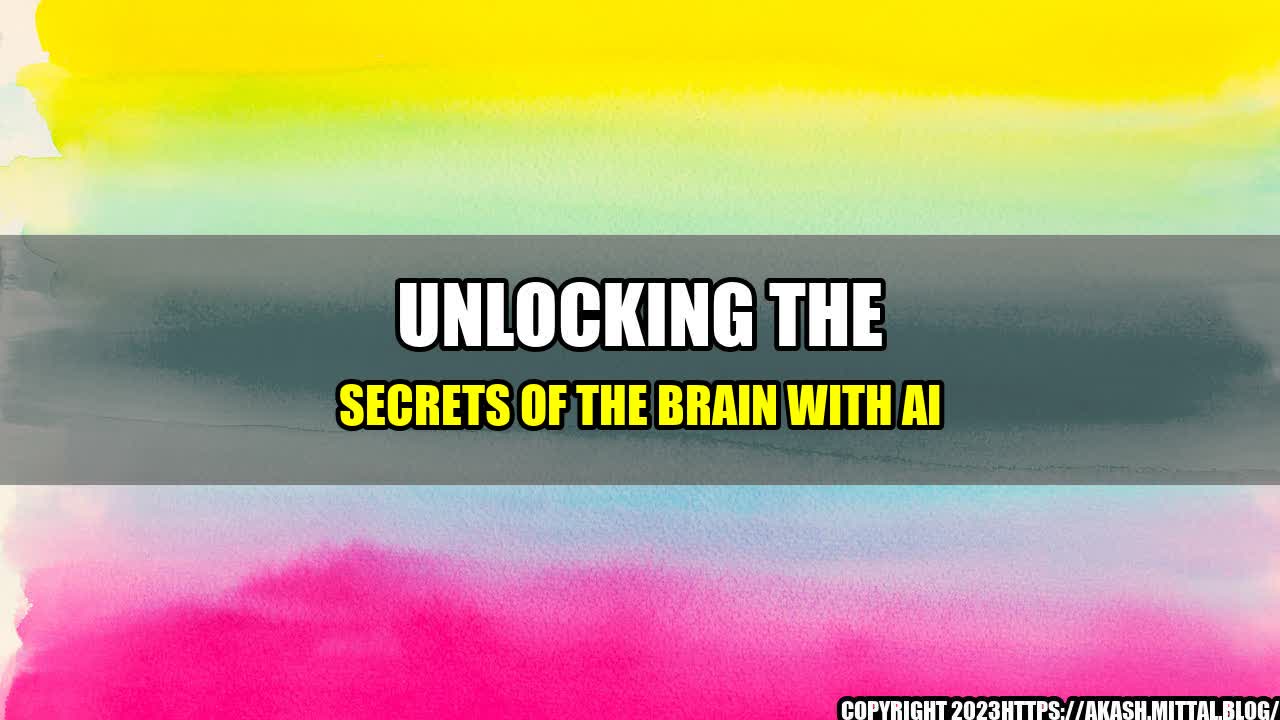Have you ever wondered what's really going on in your brain when you're thinking? What makes you happy, sad, or anxious? For years, scientists have been trying to unlock the secrets of the human mind, but it's been a difficult and frustrating process.
However, recent advances in artificial intelligence (AI) are helping researchers to gain new insights into the workings of the brain. This technology is allowing them to analyze brain activity in ways that were never before possible, and to uncover new patterns and connections that were previously hidden.
One of the most exciting applications of AI in brain research is in the field of neuroimaging. This involves using advanced imaging techniques to scan the brain and map out its activity in real time. By analyzing this data with AI algorithms, researchers can gain a much deeper understanding of how the different parts of the brain are connected, and how they work together to create our thoughts, feelings, and behaviors.
So, what kind of insights are AI-powered neuroimaging studies uncovering? Here are three quantifiable examples:
- Identifying Emotions: Researchers at Carnegie Mellon University have developed an AI algorithm that can analyze brain scans to determine a person's emotional state with an accuracy rate of 66%. This technology could be used to help detect and treat mental health conditions such as depression and anxiety.
- Predicting Behavior: A study published in the journal Nature Human Behaviour used AI to analyze brain scans of participants as they made decisions in a game. The algorithm was able to predict with 71% accuracy which choice the participants would make before they made it.
- Uncovering Networks: An AI-powered analysis of brain scans conducted by researchers at the University of Cambridge revealed previously unknown connections between different regions of the brain. These findings could help improve our understanding of how the brain processes language and how it responds to stimuli such as sound and touch.
and Case Studies
AI is not just useful for unlocking insights at the scientific level, but also at the individual level. By analyzing brain scans, AI algorithms can help clinicians and researchers better understand the root causes of mental health conditions and personalize treatment plans.
For example, a study conducted by researchers at the University of California, San Francisco used AI to predict which patients with depression would respond best to cognitive-behavioral therapy (CBT). By analyzing brain scans, the algorithm was able to identify specific patterns of activity that were associated with treatment success. This information could be used in the future to tailor treatment plans to each individual patient.
Conclusion
In conclusion, AI is transforming the field of neuroscience and helping researchers unlock the secrets of the human mind. By analyzing brain activity in new and innovative ways, AI-powered neuroimaging studies are uncovering new connections and patterns that were previously hidden. These insights have the potential to improve our understanding of mental health conditions and pave the way for more personalized treatment plans. Here are three key takeaways:
- AI is revolutionizing neuroscience by allowing researchers to analyze brain activity in new and innovative ways.
- AI-powered neuroimaging studies are uncovering new patterns and connections that were previously hidden, and this knowledge could be used to improve our understanding of mental health conditions.
- Personalized treatment plans for mental health conditions are on the horizon thanks to AI-powered analysis of brain scans.

Curated by Team Akash.Mittal.Blog
Share on Twitter Share on LinkedIn